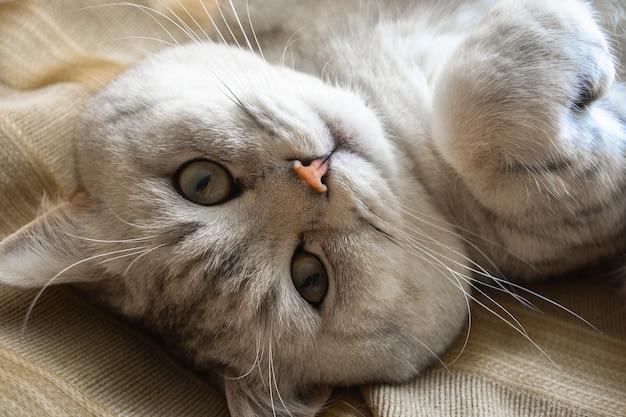
If you’ve ever looked at your cat and thought, “You’re acting like you’ve had 10 cups of coffee,” it might not just be feline mischief—it could be hyperthyroidism. Yes, cats have thyroid glands too, and when these tiny organs go rogue, they can wreak havoc. Let’s dive into the wild world of feline thyroid disease, but don’t worry, we’ll keep it as fun and fluffy as your cat’s tail!
What Is Hyperthyroidism in Cats?
Hyperthyroidism is a common condition in older cats caused by an overactive thyroid gland. The thyroid, located in your cat’s neck, produces hormones that regulate metabolism. When it starts overproducing, it’s like your cat has discovered the secret to endless energy (and hunger). This condition often results from a benign tumor on the thyroid gland, but don’t panic—it’s treatable.
At Compassionate Care Veterinary Hospital in Charlotte, NC, we’ve seen our fair share of hyperthyroid kitties, and we’re here to help you navigate this condition with ease.
Signs and Symptoms of Feline Hyperthyroidism
Think your cat might be auditioning for a feline superhero movie? Here are some telltale signs:
- Increased appetite: Your cat is suddenly eating like a vacuum cleaner.
- Weight loss: Despite the buffet behavior, your cat is losing weight.
- Hyperactivity: Midnight zoomies have become an Olympic sport in your home.
- Increased thirst and urination: Your cat’s water bowl now needs refilling twice a day.
- Unkempt fur: They’ve stopped their usual grooming routine and look like they’ve been in a wind tunnel.
- Vomiting or diarrhea: Not the most glamorous symptoms, but they’re worth noting.
If these signs sound familiar, it’s time to consult your veterinarian.
Diagnosing Hyperthyroidism in Cats
Getting to the root of your cat’s thyroid troubles is straightforward. Your veterinarian will typically:
- Perform a physical exam (because who doesn’t love to go see their favorite vet?).
- Order blood tests to measure thyroid hormone levels (specifically T4).
- Rule out other conditions with similar symptoms, like diabetes or kidney disease.
Pro tip: Don’t let your cat see the needle coming- they’re masters of the dramatic exit.
Treatment Options for Feline Hyperthyroidism
Now for the good news: there are plenty of ways to treat hyperthyroidism in cats! Here are the most common options:
- Medication: Daily oral pills or topical gels can regulate thyroid hormone levels. Just don’t let your cat outsmart you during pill time (spoiler: they will).
- Dietary Therapy: Special low-iodine cat food can help control the condition. Yes, it’s like putting your cat on a health kick.
- Radioactive Iodine Therapy: A one-time treatment that’s highly effective. Your cat might glow with good health, figuratively speaking, of course.
- Surgery: In some cases, removing the problematic thyroid gland is an option. Your cat will probably milk the post-surgery snuggles for all they’re worth.
We’ve worked with many cat owners in Charlotte to find the best treatment options for their pets, tailoring care to suit each unique situation.
Hyperthyroidism in cats might sound scary, but with proper care and treatment, your furry friend can go back to their regular antics in no time. Whether you’re researching or already managing this condition, Compassionate Care Veterinary Hospital is here to support you with the treatment options that work best for you and your cat. After all, a happy cat means a happy home (even if they still wake you up at 3 a.m.).
